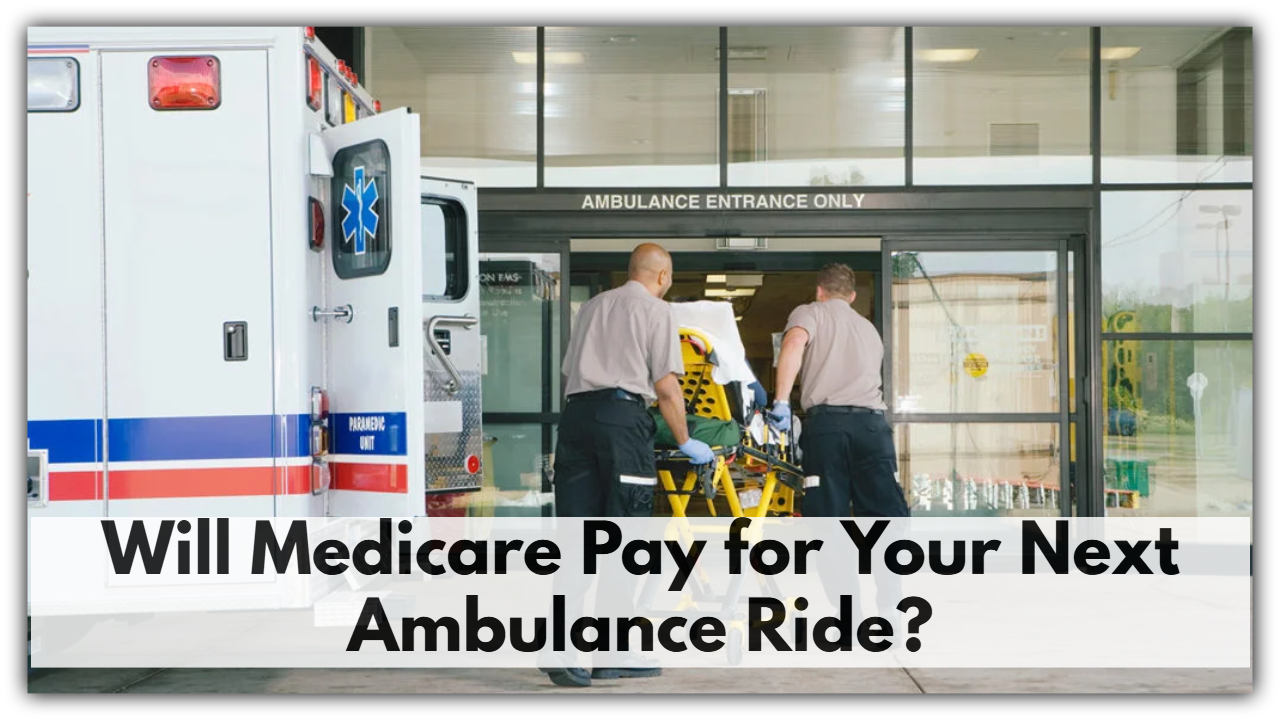Will Medicare Pay for Your Next Ambulance Ride? Here’s What You Need to Know!
If you or someone you care about has Medicare, you’ve probably wondered: Will Medicare pay if I need an ambulance? It’s a good question — and the answer isn’t always simple. Let’s break it down in plain, everyday language.
When Will Medicare Help Pay for an Ambulance?
Medicare Part B (that’s the part that covers doctor visits and medical stuff) can cover ambulance rides, but only if they’re really needed for your health.
What Counts as an Emergency?
If something serious happens — like a heart attack, stroke, or a bad injury — and you need to get to the hospital fast, Medicare usually has you covered. The rule is that riding in an ambulance has to be the safest, quickest way to get medical help. If you could have gotten there safely by car or taxi, Medicare might not pay.
What About Non-Emergency Rides?
Sometimes you might need an ambulance but it’s not an emergency. Medicare might cover those rides, too, but there are some important rules:
-
You have to be pretty sick or disabled — like stuck in bed and unable to sit up or walk.
-
You need medical care during the ride that only an ambulance can provide.
-
Your doctor has to say in writing that you really need the ambulance.
So, if you have a condition like kidney failure and need to get to dialysis regularly, Medicare might help cover ambulance rides if it fits these rules.

What Will It Cost You?
Even if Medicare pays, you’ll probably have some out-of-pocket costs:
-
You’ll first have to meet your Medicare Part B deductible, which in 2025 is $257.
-
After that, Medicare usually pays 80% of the approved cost for the ambulance ride, and you’ll pay the other 20%.
Heads up: sometimes ambulance companies charge more than what Medicare agrees to pay, so you might get a bill for the difference.
How Does the Billing Work?
-
For emergencies, ambulance companies usually bill Medicare directly.
-
For planned, non-emergency trips, you might need approval ahead of time.
-
If you’re in a nursing home or hospice, the billing might be handled a bit differently.
And if Medicare says “no” to paying for a ride you think should be covered, don’t stress. You can appeal the decision. Just check your Medicare Summary Notice to see how.
What Doesn’t Medicare Cover?
Here’s what Medicare generally won’t pay for:
-
Rides to your doctor’s office.
-
Wheelchair vans (called ambulette services).
-
Trips just because you don’t have another way to get around.
What Should You Do If You’re Not Sure?
If the ambulance company thinks Medicare won’t pay, they’re supposed to give you a form called an Advance Beneficiary Notice (ABN). That way, you know you might have to pay yourself.
Got questions? You can always call Medicare at 1-800-MEDICARE (1-800-633-4227) or visit their website medicare.gov.
Medicare can help cover ambulance rides — but only when it really matters and follows certain rules. Knowing when you’re covered, what you’ll pay, and how billing works can save you headaches down the road.


Comments are closed, but trackbacks and pingbacks are open.